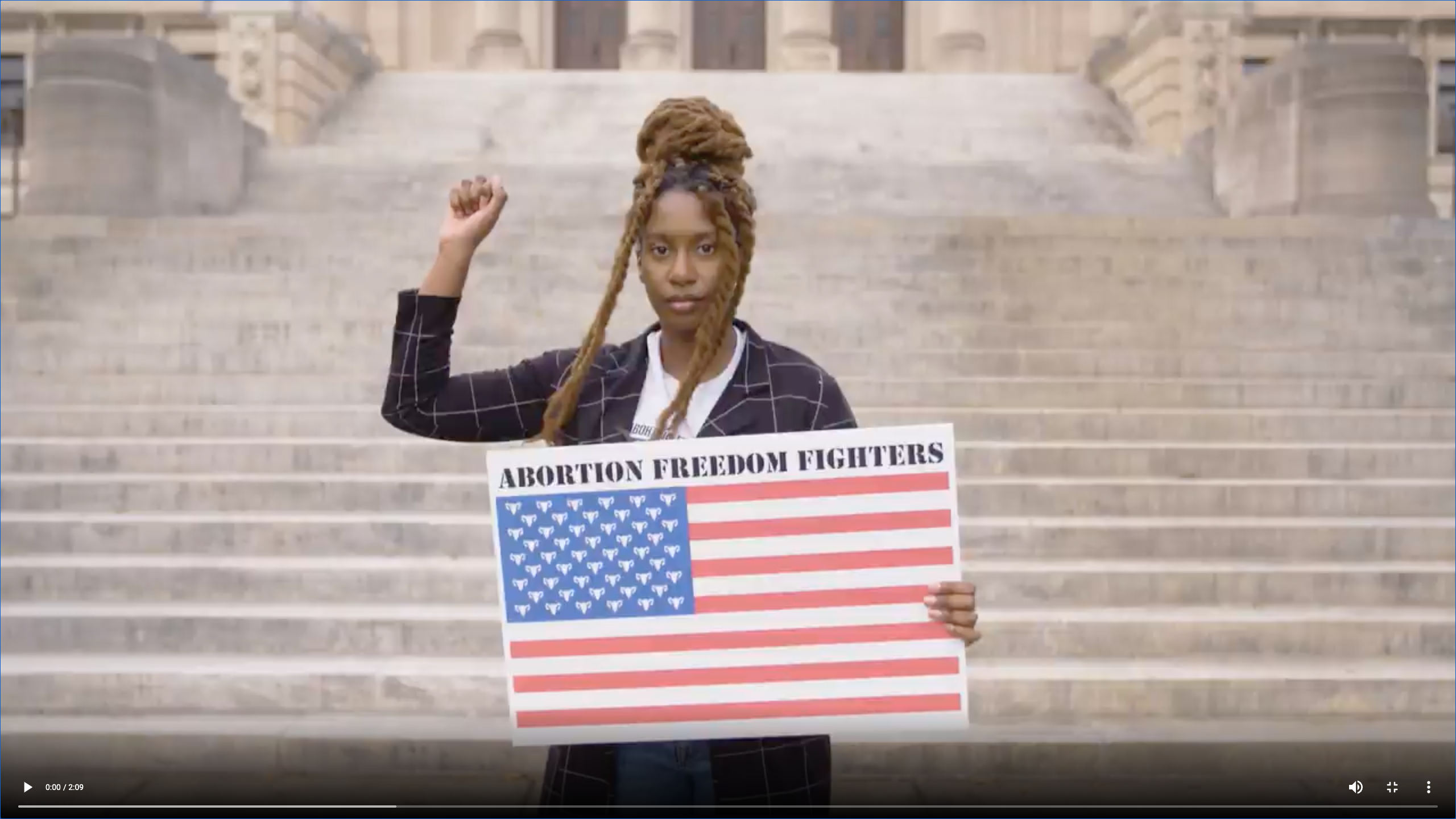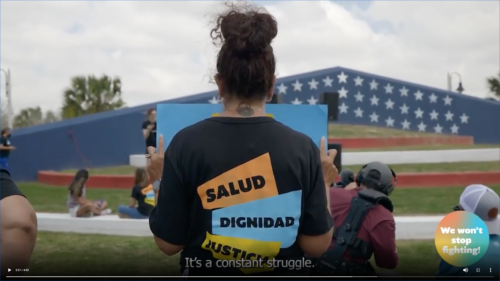Our Impact
Since 1994, Latina Institute has been building Latina/x power through leadership and advocacy trainings. We center the needs, voices, and leadership of those who have been marginalized and oppressed.
Recognizing that Latinas/xs face persistent personal and structural barriers that serve to undermine their human and civil rights and perpetuate reproductive injustice, Latina Institute will work at the national and state level to build leaders, catalyze policy change, and transform cultural narratives.
Latina Institute grounds its reproductive justice framework at the intersection of reproductive health and rights, im/migrant rights and justice, Latino civil rights and liberties, and economic justice.
Reproductive Health & Rights:
We believe access to healthcare, including reproductive health care, is a human right. We envision a world where all individuals, especially those who have been historically oppressed, have autonomy over their bodies, determine their own futures, and define when and how they form their own families. At Latina Institute, we have a specific focus on expanding access and affordability to abortion, contraception, and overall healthcare for those who are excluded from receiving the healthcare that they need.
Immigrant Rights & Justice:
We believe that immigrants are bestowed the same inherent human rights of all individuals such as freedom of movement, healthcare, and the fundamental freedom to build and sustain families with dignity and unity. These inherent human rights are universal and transcend borders.
Economic Justice:
We believe that economic justice issues impact our communities’ ability to afford and access reproductive health services, as well as the ability to decide if and when to have children, build our families, and parent our children with dignity. We believe that working people’s contributions must be given their rightful value in society by seeking to level the playing field on pay equity and dismantling systems that actively punish and disempower those who were not born into privilege.
Latino Civil Rights & Civil Liberties:
We seek to protect and defend the civil rights and civil liberties of Latina/x communities, as well as combat discrimination against us. The denial of our civil rights and civil liberties is intrinsically tied to the historic and ongoing reproductive oppression we face. We believe in our community being represented, having a voice and being civically engaged to drive the decision-making that impacts our health and wellbeing.

- 99% of Poderosas believe they are better leaders as a result of our trainings.
- 95% of Poderosas have a shared purpose as members of our state activist base.
In 2019, activists with Latina Institute, NAPAWF, and In Our Own Voice came together to discuss issues harming their communities. This powerful coalition of people of color went to Capitol Hill to discuss important legislation with lawmakers.
Frameworks that Drive Change
Latina Institute is grounded in the following analysis and frameworks:
Movement building
Movement building is core to reproductive justice and for Latina Institute as it is a community-centered approach to social change that recognizes that our work is a part of a larger movement for racial and social justice. It centers the operalization of transformational long-term strategies where we focus on relationship building, power building and leadership development of those closest to the margins. We apply an intersectional analysis to our public policy advocacy, political and reproductive health education, and civic engagement campaigns.
Intersectional Analysis
Intersectionality is an analysis that describes the experience of oppression and the strengths that individuals and communities bring to particular issues by addressing the intersections of race, class, gender, sexuality, immigration status, age, ability and other identities and experiences that impact our lives. The term was coined by Kimberlé Crenshaw. Intersectionality describes how power structures interact and are compounded in the lives of people of color. This analysis is adopted in our organizing model by applying a lens of race, class, gender, and sexuality to our core strategies.
Human Rights
We are all equally entitled to our human rights without discrimination based on race, class, gender, and status. These rights are all interrelated, interdependent and indivisible, and they transcend borders. We believe that people have a fundamental bill of rights to live healthy lives and enjoy full civil, political, economic, social, and cultural rights. We believe that our government has the duty to protect, promote, and implement all human rights and fundamental rights.
LGBTQ+ Liberation
Since our founding over 25 years ago, Latina Institute has been inclusive of the spectrum of identities among the Latina/x community, which includes LGBTQ+ liberation. We strongly believe that our decisions of who to love and our gender expressions should be celebrated and supported, free from political interference, and that each member of our community, regardless of their identity, should have autonomy over their bodies, and the self-determination to define, if, when, and how they form their own families.
Racial Justice and Black Liberation
As Latina/x Reproductive Justice activists, we must call out anti-Blackness in the Latina/x community and fight alongside Black and Brown communities for our collective liberation.
Dismantling anti-Black in our community means acknowledging white privilege, and naming the internalized racism, prejudice, bigotry, hate and violence that we perpetuate. It means having challenging conversations regarding our colonized existence. It means calling out anti-Blackness and calling in the need to center experiences of Black Latinas/xs as we look at our data, policy priorities, and coalitions.

